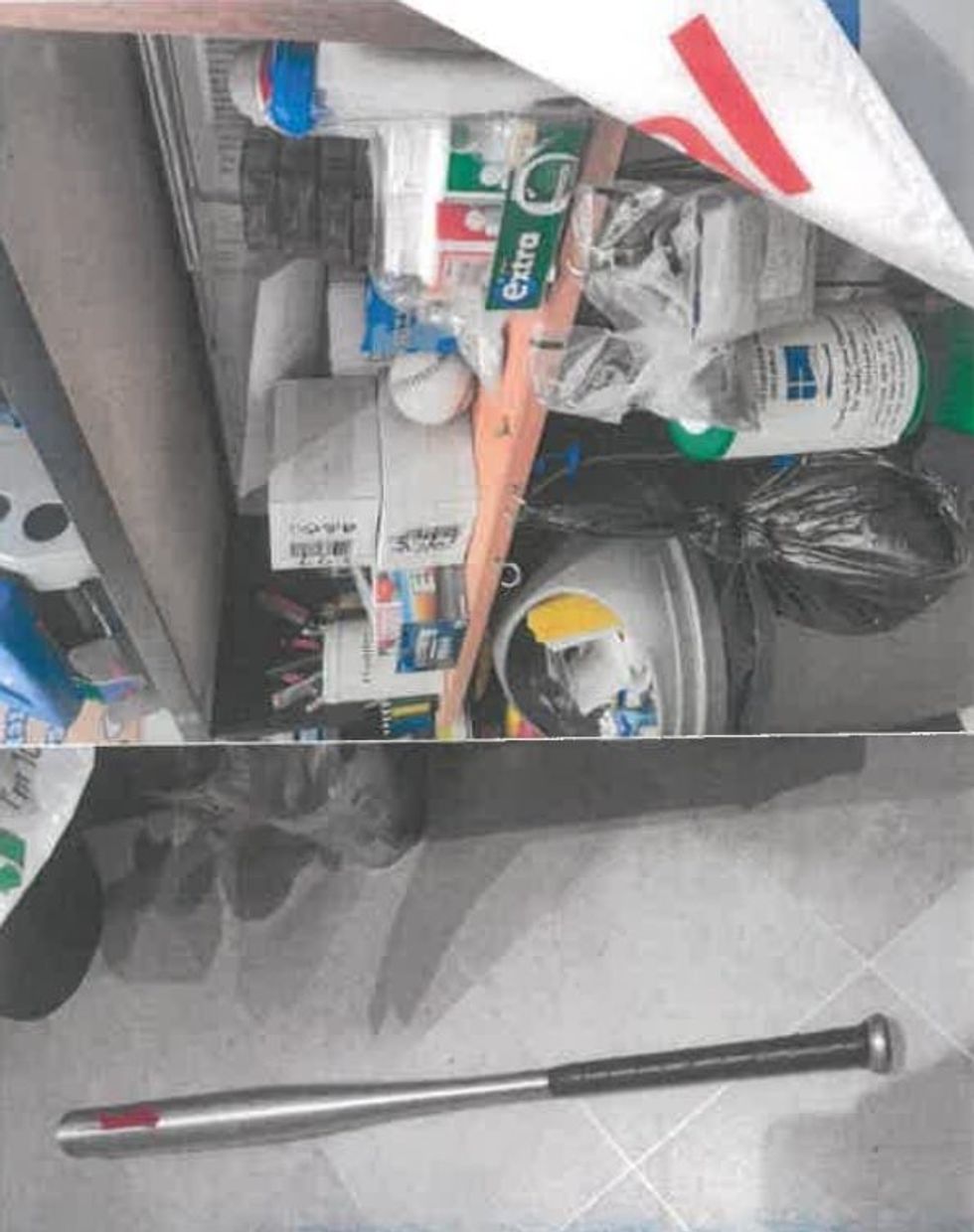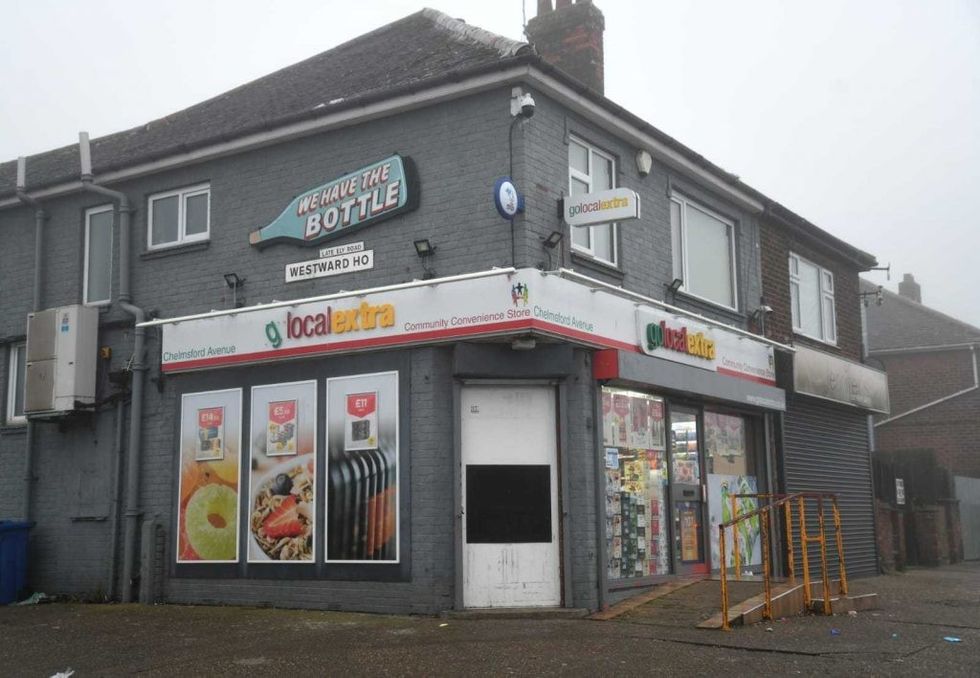Two stores in Grimsby from the same chain have been subject to licence reviews on the grounds of “crime and disorder – immigration offences”.
Both are owned by the same husband and wife, Mr Sandeep Gaddu and Mrs Barinderjeet Gaddu and are part of the wider Go Local chain. They were up for licence review by North East Lincolnshire Council’s licensing sub-committees on December 7 due to having an illegal worker.
The Go Local store in Chelmsford Avenue, Grimsby, has had its licence suspended for three months and additional conditions imposed. The wait for a decision on the licence for Go Local in Littlefield Lane, Grimsby, will continue into next year though. This is due to an ill councillor on the sub-committee who was unable to attend, meaning there were not enough members to be able to make a decision.
The two stores were subject to a surprise visit by Humberside Police with Home Office immigration enforcement officers on September 8. This was after an allegation had been made that an illegal worker, an Indian man aged between 25 and 34 years old, was working at both for cash in hand.
An illegal worker was found at each store in the simultaneous inspections. Both premises were also in breach for not having CCTV recording going back at least 31 days and lack of Challenge 25 display material, the scheme to challenge people buying alcohol who look under 25. A baseball bat and ball were found at one shop behind the counter, while at the other store, it was initially claimed the illegal worker was watching cricket on the TV.

The owners have accepted the breach of immigration offences. In a statement submitted to the Littlefield Lane store review, they also said they were now familiar with immigration legislation.
At the Chelmsford Avenue store, it was claimed that the illegal worker was simply looking after the shop for five minutes and had not served any customers. It was 35 minutes before Mrs Gaddu arrived and a print-out of the latest receipt found one had been issued three minutes before police and enforcement officers arrived. A review of CCTV footage there also showed the man had been working in the premises on at least two days in the immediate weeks before.
It was observed by police and immigration enforcement when ordered to close the shop until a licence holder came, that the man appeared “very familiar with the procedure” to turn off appliances and shut the store. The man was also identified as the illegal worker at the store by police in a previous visit in November 2021.
A baseball bat and ball were found under and behind the counter at the Chelmsford Avenue store. “Items like this should not be stored behind a counter where there is potential for it to be used as a weapon against a customer,” said the attendee licensing police officer in her written statement to the council.
When Mrs Gaddu was questioned about this during the police and enforcement officers’ visit in September, she at first claimed it was for her children to play with. It was pointed out that the shop is by two main roads and a busy car parking area, so there was not the space for that. Mrs Gaddu then said the baseball bat and ball were for sale. This was also challenged as neither had a price tag and there was nothing similar in the shop, and she responded that the items had been there for some time, but were not used as a weapon.
The police officer states she then recalled seeing the baseball bat at the previous November 2021 visit and asking for it to be removed, which had been agreed with. Mrs Gaddu was told “in no uncertain terms” that the item had to be removed immediately. This was complied with.
“They have a complete disregard to the licensing objectives and also the law regarding illegal workers,” added the police officer in her statement of the police’s view of the license review. The illegal worker at the Chelmsford Avenue store said when interviewed in November 2021 he was a cousin of Mr Sandeep Gaddu and he had helped out for two to three weeks.

He had worked from 7 to 11 each day and said he was paid about £8 an hour. The man indicated he was aware he did not have permission to be in the UK and was arrested for the immigration offence. He was also found to be wanted for a criminal offence, though the nature of this is not specified.
Immigration enforcement and Humberside Police have sought the revoking of the licenses for the two premises, but did set out conditions to impose if the council’s licensing sub-committees did not agree. The licensing sub-committee which considered the case of Go Local in Chelmsford Avenue were not unanimous in their verdict.
But they decided to suspend the premises licence for three months and require additional conditions suggested by Humberside Police and immigration enforcement. These include:
- Sufficient camera coverage of all entry and exit points, areas not easily covered from the sales counter and all areas where alcohol is either sold or displayed
- The CCTV system must be capable of continuous recording in colour and copies of such recordings must be kept for at least 28 days
- The CCTV system to be capable of producing copies of recordings on site in DVD or USB form when requested by a council or police officer who shows their identification
- All staff to receive training, including covering all aspects of the responsible sale of alcohol
An initial claim was made at the Littlefield Lane store that the illegal worker there was just watching cricket and was not working. When CCTV footage was reviewed showing the same man working in the store for 75 minutes before and on other recent dates, police and enforcement officers report it was admitted he had been working there.
The individual was in the country on a visitor visa due for expiry of September 23. As part of the visa’s conditions, he was prohibited from employment. He was issued by immigration enforcement with an administrative caution.
After advice from solicitors John Barkers of Grimsby, Mr Sandeep Gaddu issued a statement to the local authority accepting the breach of immigration law at the Littlefield Lane store. He says in the statement that the man found by police and enforcement was his brother: “My brother had a visa to enter the United Kingdom and I was not aware that he was not allowed to work.
“I now know differently. As a family member he was helping us and was not being paid. I now know that he should not have been providing such help.” He goes onto state there will be “no repetition” as his brother left for India in September and that the civil liability penalty for the infringement has been “a shock to me and the business”.
In a second statement, made jointly by Mr and Mrs Gaddu, they state they have now familiarised themselves with immigration legislation. A personnel record is also being kept for all members of staff and possible applicants to jobs to remove the potential to employ illegal workers in future.





